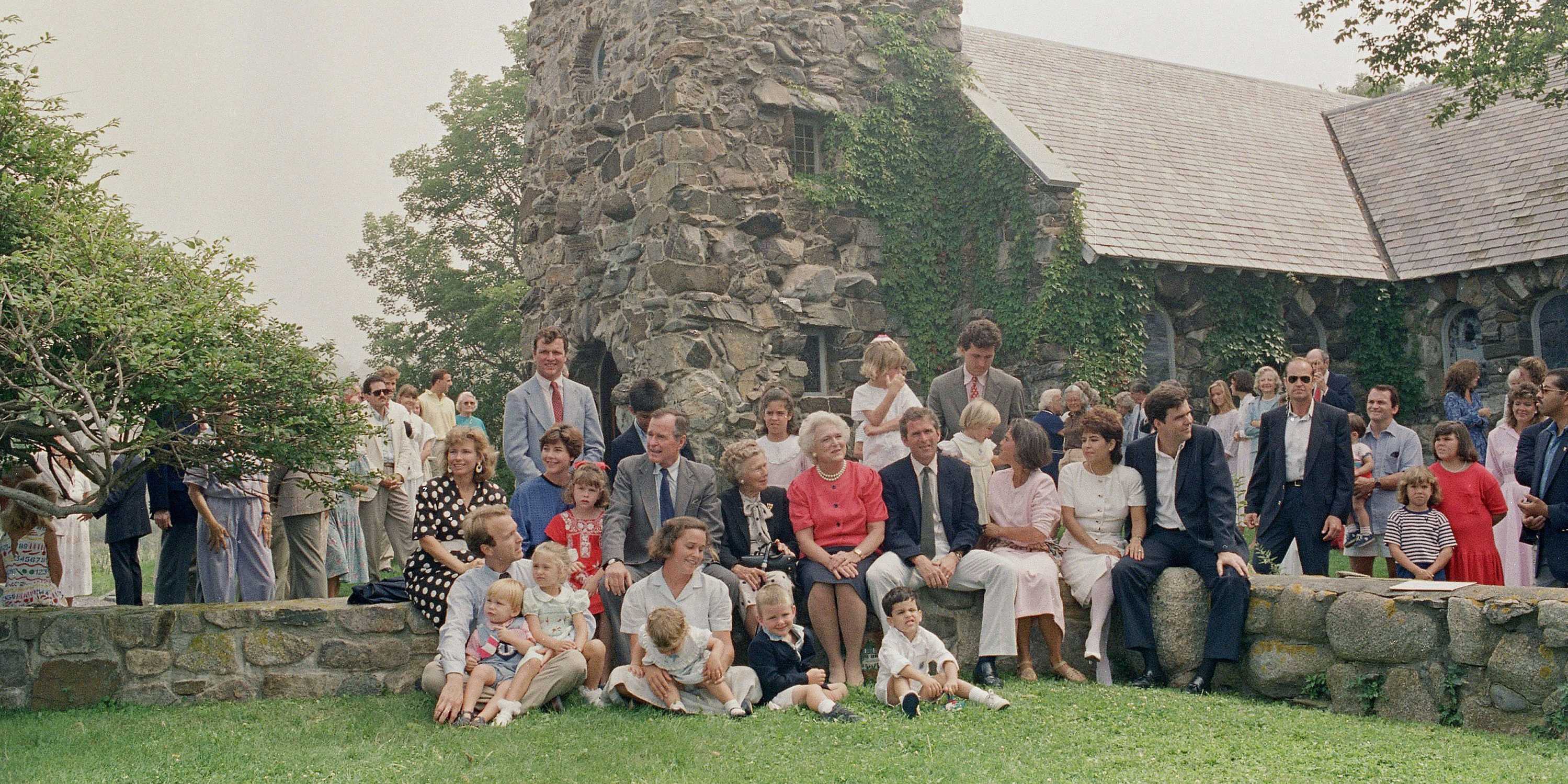Over the course of five generations, the Bush and Walker clans have amassed fortunes and political power beyond belief. The family is worth a reported $400 million and has seated two members in the Oval Office.
With the death of the former first lady Barbara Bush at age 92, we’re looking back at how his family came to earn such influence.
This retrospective includes insights from Jacob Weisberg’s exhaustive biography, “The Bush Tragedy” and more, as well as vintage photos.
Here’s how the Bush family became an American dynasty:
Samuel Prescott Bush, son of a minister, lay the foundation for the family’s fortune. Known as the grand patriarch of the Bush clan, he was an Ohio steel and railroad executive.

He worked his way up from an apprenticeship to become president of Buckeye Steel Castings Co., the country's third largest producer of steel couplers at the turn of the century. Samuel rubbed elbows with the Rockefellers and cofounded the U.S. Chamber of Commerce.

Sources: Columbus Business First, The New York Times
Samuel had a son who wanted nothing to do with his father’s manufacturing ventures. He would carve his own success story.
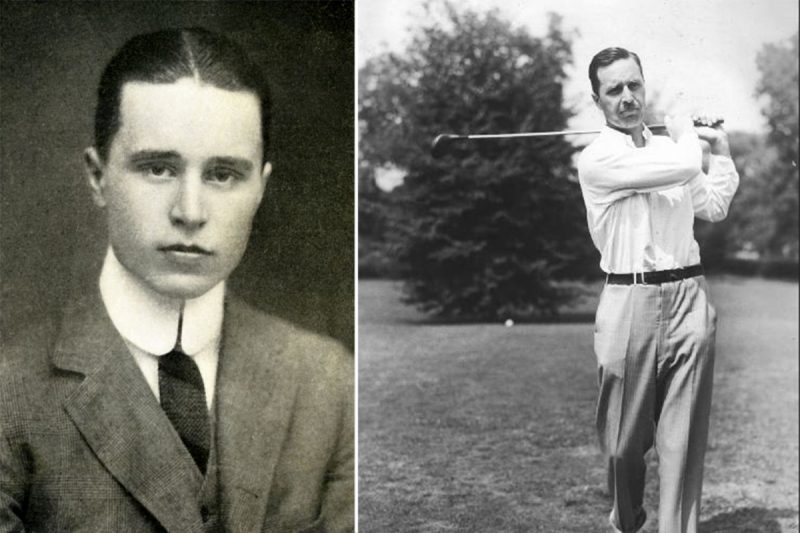
Prescott Sheldon Bush burst onto the high society scene as a tall, athletically gifted young man at Yale. He picked up varsity letters in baseball, hockey, and golf, sang with the Whiffenpoof Quartet, and belonged to the school's ultra-exclusive secret society, Skull and Bones.

After returning from World War I, Prescott found work selling hardware in St. Louis. There, he met a beautiful and energetic 18-year-old named Dorothy Walker. Their union marked the beginning of the Walker-Bush lineage.

In the mid-19th century, Dorothy's grandfather, David Davis Walker, had left his large, Catholic family’s farm in Cecil County, Maryland, and found his way to St. Louis, Missouri. He made his riches as a dry goods wholesaler.

Unlike the puritanical and workhorse-like Bushes, the Walkers lived lavishly. David hired private nurses and valets, who traveled with his children to boarding school, and purchased an oceanfront estate in Kennebunkport, Maine.

His equally wealth-hungry son, George Herbert "Bert" Walker, founded one of the Midwest’s earliest investment banking firms while he was in his 20s. He made a bulk of the Walker family's fortune at a historical Wall Street firm.

Before the Walkers departed St. Louis for New York, Bert's daughter Dorothy fell for a striking Yale grad just back from the war. Her choice of beau, Prescott S. Bush, thrilled Bert.
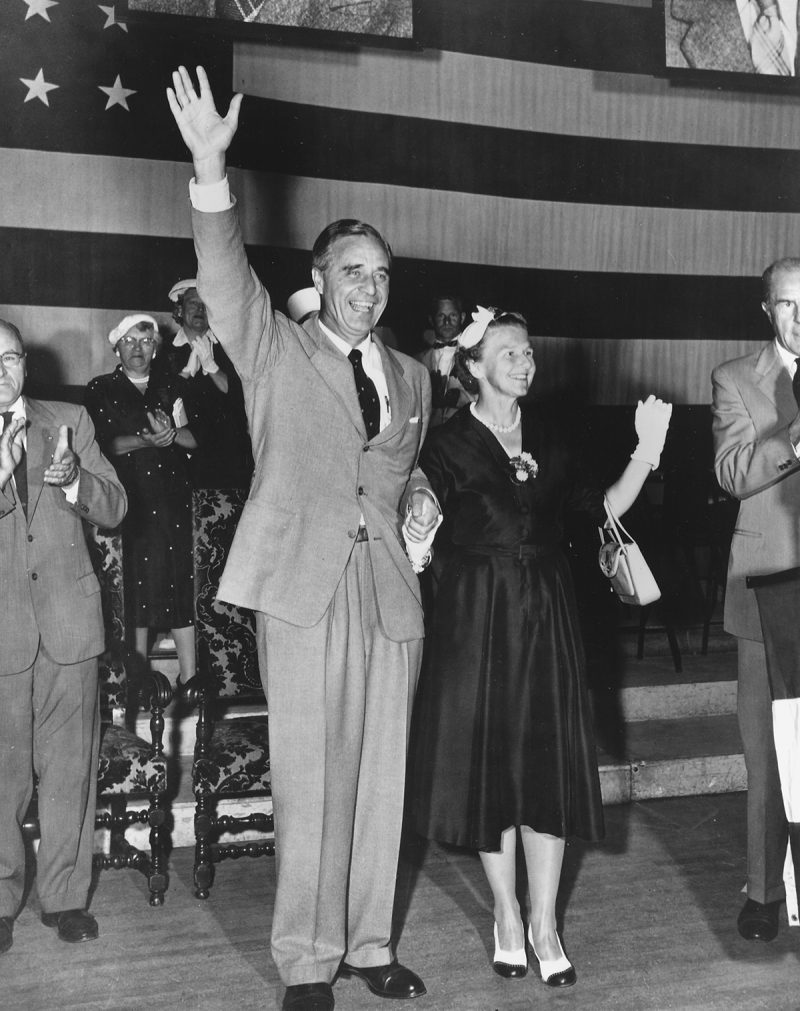
Source: The New York Times
Bert pulled some strings and found work for Prescott at the firm, though Prescott refused to admit he had any help getting there. Having the job handed to him betrayed his family’s tradition of making a name for yourself.

Still, he used the chance to catapult himself to greater riches and power. Prescott directed an investment bank that facilitated the transfer of gold, oil, steel, and coal all over the globe during World War II (its assets were later frozen, under suspicion that the bank backed Nazi sympathizers).

Source: The Guardian
Prescott was never found guilty of any crime. He went on to serve two terms as a US senator from Connecticut between 1952 and 1963.

Prescott and Dorothy had five children, one of whom would elevate the family’s political status to its highest level yet. His name was George Herbert Walker Bush.
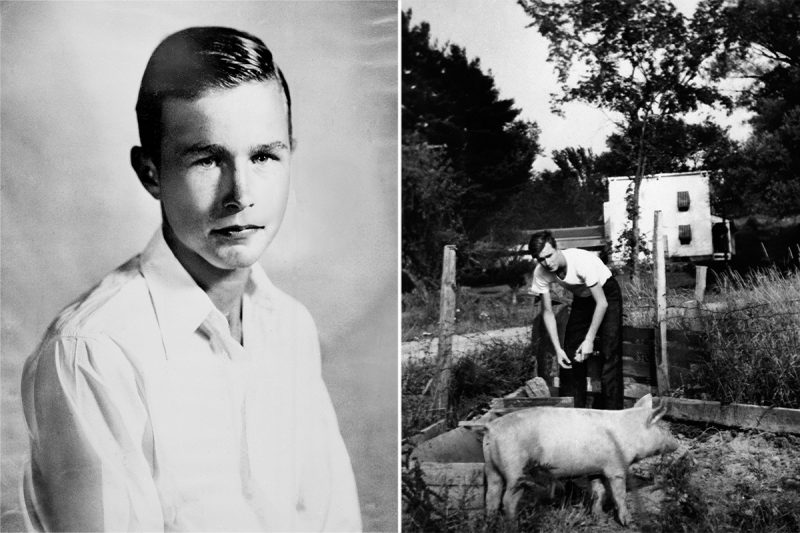
Raised in an overtly religious household that encouraged both competitiveness and loyalty, George graduated from Phillips Andover Academy and enlisted in the armed forces on his 18th birthday.

Source: New York Times, White House
Upon his return from the war, George married his high school sweetheart Barbara Pierce and enrolled at Yale, where he captained the baseball team and joined the Skull and Bones society.
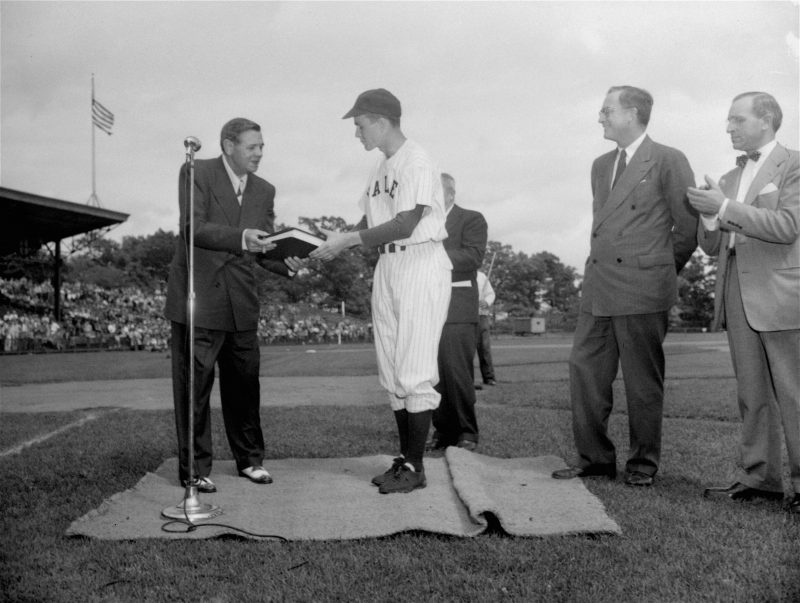
Source: History.com
He moved the family to Texas, landing a job at a Texas oil equipment company where his father, Prescott, was a board member. George eventually became president of an independent offshore oil company.

Sources: Business Insider, History.com
The same year his father retired from the Senate, in 1962, George took a serious interest in politics and became chairman of a local Republican committee. He won a seat in the US Congress four years later.

Source: PBS
President Richard Nixon appointed him an ambassador to the United Nations, sending his political career into hyperdrive. George became chairman of the Republican National Committee, director of the CIA, and eventually, Ronald Reagan's vice president.
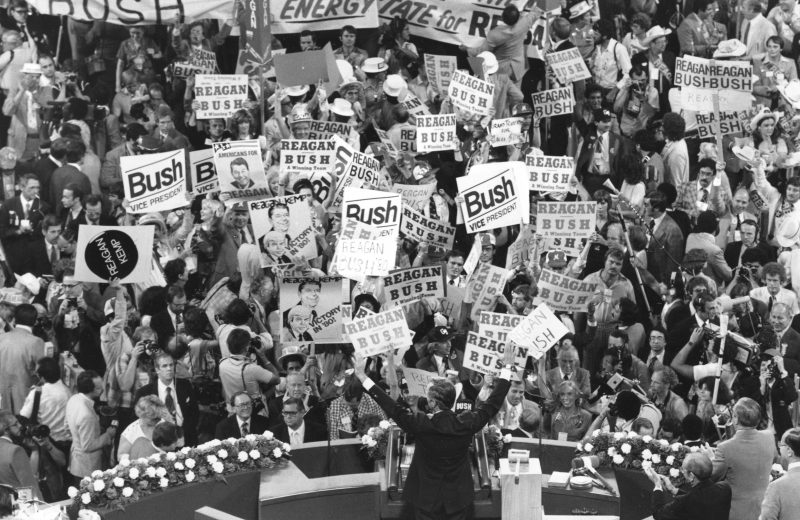
On January 20, 1989, George was sworn into office as the 41st president of the US.
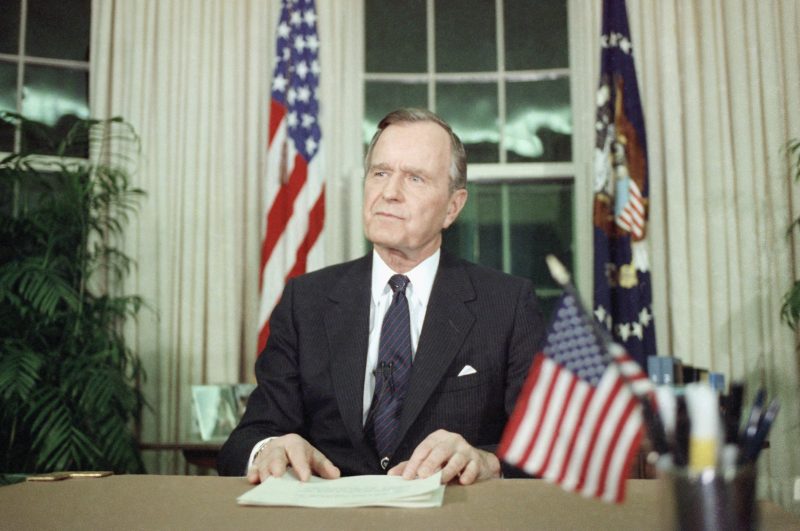
His son George W. Bush followed closely in his footsteps.

First-born W. graduated from Yale in 1968, served in the armed forces, and pursued a career in the oil industry.

Source: White House
While traveling the country on behalf of his father's presidential campaign, Bush sparked an interest in the "other family business." Karl Rove convinced him to run for Texas governor, and he captured 53% of the vote. W. announced his intent to run for president during his second term.

Source: PBS
Exactly 12 years after his father swore in as president, W. took the oath of office as 43rd president of the US. He also won a second term, which eluded his father.
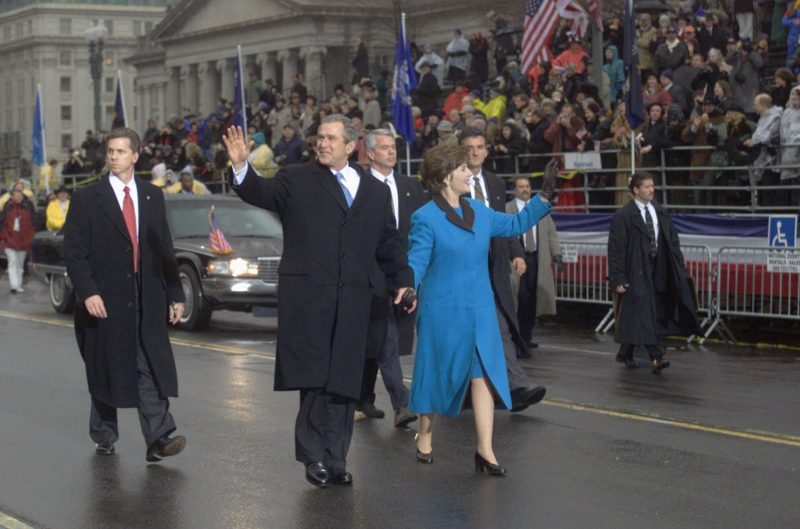
The Bush family dynasty then looked to accomplish a presidential hat-trick. In December 2014, second-born son John Ellis "Jeb" Bush (second from right) released a statement hinting at a run for office.
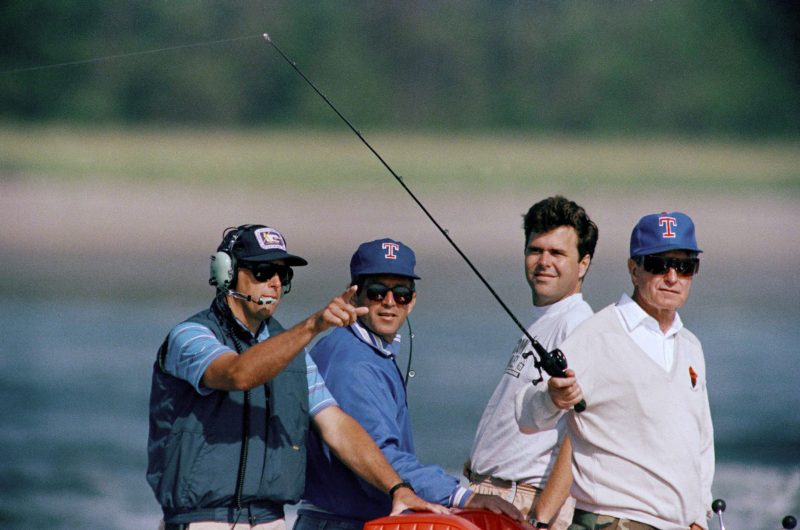
Growing up, Jeb deviated from his father's and brother's career trajectories. He studied Latin American affairs at the University of Texas and moved to Florida in the early 1980s to work as a real estate developer and broker.
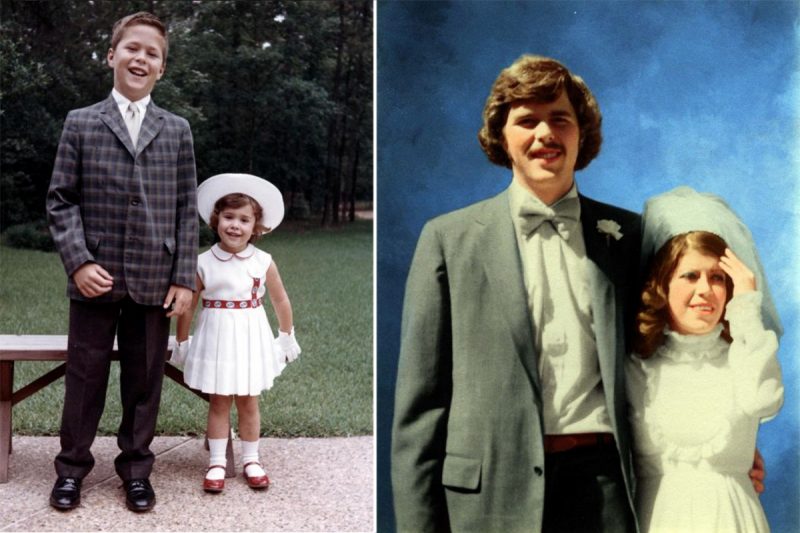
He forayed into politics as Florida's secretary of commerce in the late '80s and quickly moved up the ranks, serving two terms as the state governor.

Jeb was considered a GOP front-runner for 2016, but lost in the primary to President Donald Trump.

Despite being one of the world's most polarizing families, the Bush dynasty continues to triumph in money and politics.

